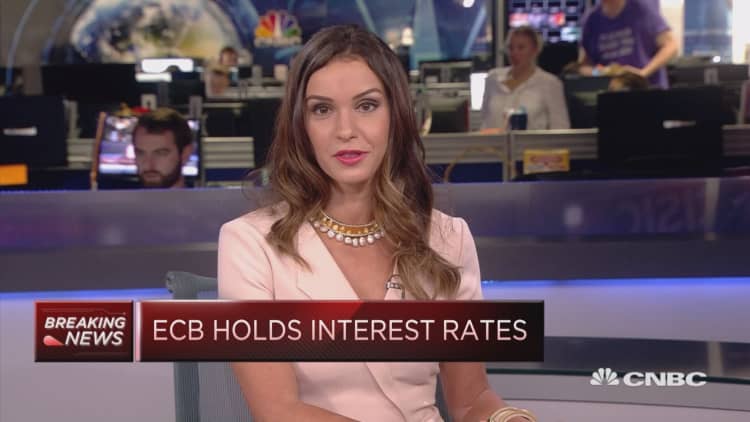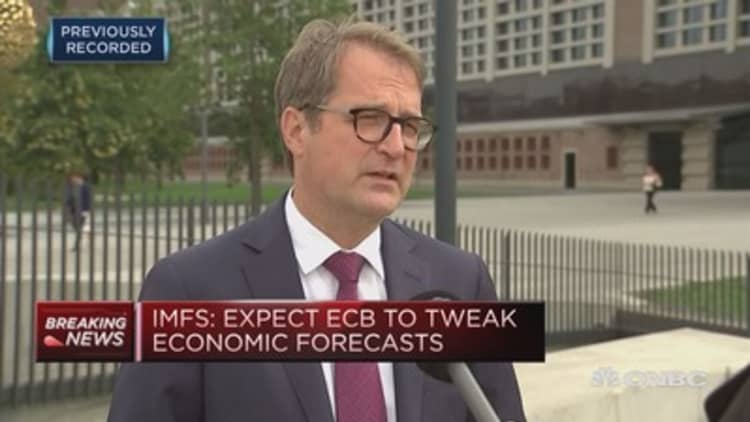
The European Central Bank (ECB) left benchmark interest rates unchanged on Thursday, with policymakers likely to argue the regional economy is robust enough to absorb spare capacity and generate inflation.
In a subtle change to the bank's guidance, the ECB announced plans to end bond purchases at the end of year and keep interest rates at record low levels at least through next summer.
The bank also confirmed it will halve bond purchases to 15 billion euros ($17.4 billion) per month from October.
With inflation rebounding and economic growth leveling-off at a relatively stable pace, the ECB has been gradually removing crisis-fighting stimulus for months. The scaling back of such measures come despite risks to Europe's economy, ranging from global protectionism to emerging market turmoil.

Nonetheless, ECB President Mario Draghi confirmed the bank will stick to its current monetary policy, with Europe's economic growth run now into its sixth consecutive year.
"When does a central banker know that he (or she) has done an immaculate job? When QE (quantitative easing) is brought to an end and financial markets could hardly care less," Carsten Brzeski, an ECB watcher at ING Diba, told CNBC via email on Thursday.
"According to this definition, the ECB should be extremely satisfied with the outcome of today's meeting," he added.
Market participants are likely to closely monitor Draghi's press conference at 1:45 p.m. London time (8:45 a.m. ET) for further clues, but the ECB chief is unlikely to be willing to give away too many details Thursday afternoon.
Crisis-era stimulus
Over the past four years, the ECB has purchased more than 2.5 trillion euros of debt, depressing borrowing costs and stimulating economic growth in the 19-member currency bloc after a double-dip recession.
But, so-called quantitative easing (QE) — which refers to the process of pumping cash through the financial system and real economy, supporting growth and inflation — is now scheduled to end in December.
The central bank's plans to wind up QE are thought to symbolize the end of crisis-era policies in the euro zone. The measures are widely credited to have helped revive the once stricken economy.
Thursday's decision sees the ECB's deposit rate — currently its primary interest rate tool — remain unchanged at -0.4 percent, while the main refinancing rate was held steady at 0 percent.
— CNBC's Annette Weisbach contributed to this report.


